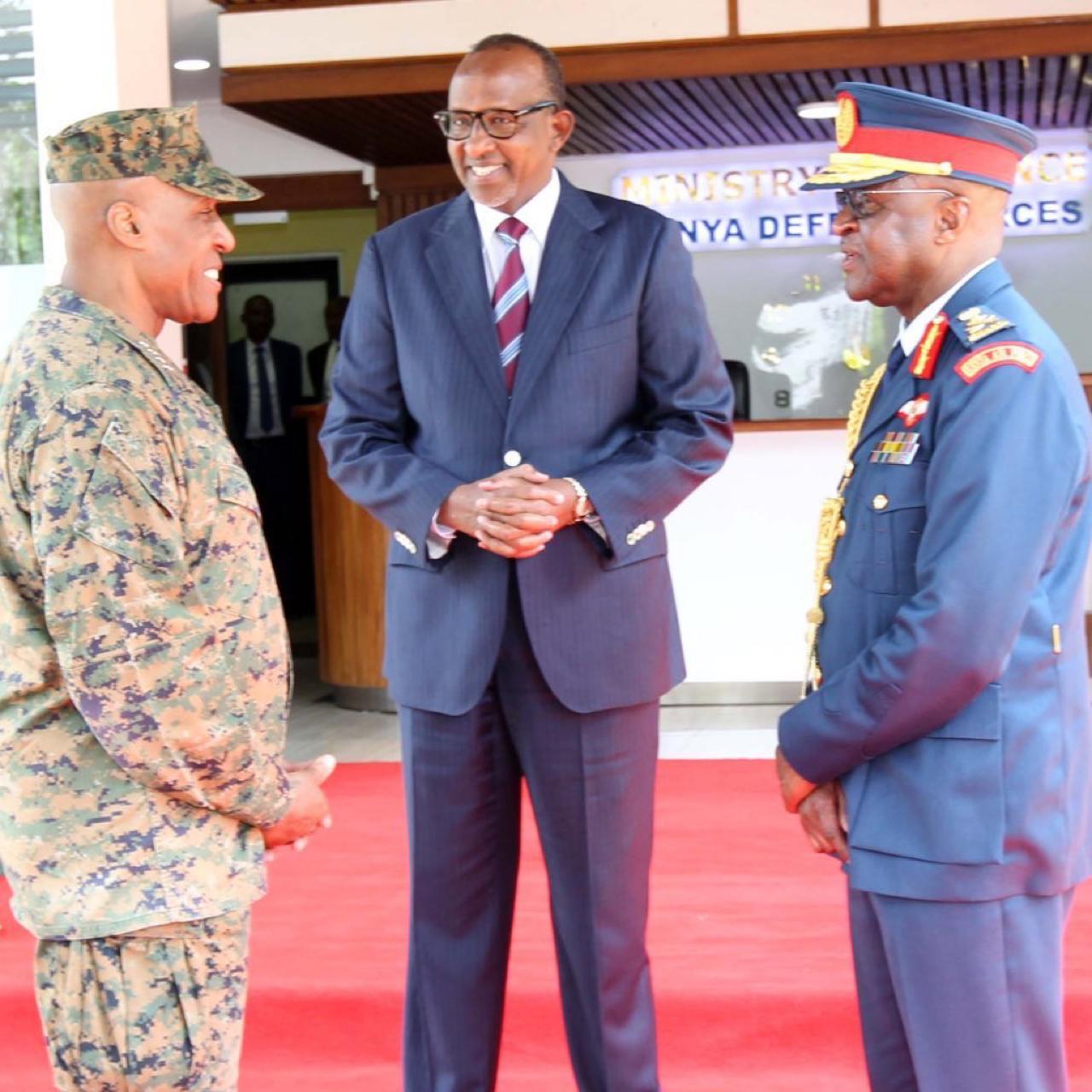Defence Cabinet Secretary Aden Duale on Tuesday, January 23 held discussions with visiting Commander of United States Africa Command (AFRICOM) General Michael Langley at the Defence Headquarters in Nairobi.
Duale said during the meeting he expressed Kenya’s appreciation for the close working relations with the US on a range of issues among them counter-terrorism, maritime security, and peace support operations.
The talks centered on security and stability in and around the Horn of Africa and the Great Lakes Region.
Duale was joined in the meeting by Chief of Defence Forces Gen Francis Ogolla, Defence Principal Secretary Patrick Mariru, and Vice Chief of Defence Forces Lieutenant General Jonah Mwangi, among other senior military officials.
Gen Langley is one of the senior-most American military commanders who has visited Kenya.
He is a US Marine Corps General who has served as the commander of Africom since August 9, 2022.
It comes days after US Central Intelligence Agency (CIA) Director William Burns met President William Ruto at State House, Nairobi, on January 15, 2024.
The meeting comes at a time of increased security threats across the region including the Middle East and Horn of Africa.

Kenya is among key strategic partners in the US security activities including terrorism and transnational organized crime.
Headquartered in Stuttgart, Germany, U.S. Africom is one of seven joint service geographic combatant commands.
The unit is responsible for all U.S. military operations and activities to protect and advance U.S. national interests in Africa.
Tuesday’s meeting comes a few months after the United States Secretary of Defense Lloyd Austin III made a similar visit to Kenya top of his agenda was the deployment of Kenya’s police to lead a multinational security support mission in Haiti.
The area of responsibility of US Africom consists of 53 African states.

U.S. Africa Command began initial operations on October 1, 2007, and became fully operational on October 1, 2008.
U.S. Africa Command, with partners, counters transnational threats and malign actors, strengthen security forces, and responds to crises to advance U.S. national interests and promote regional security, stability, and prosperity.
